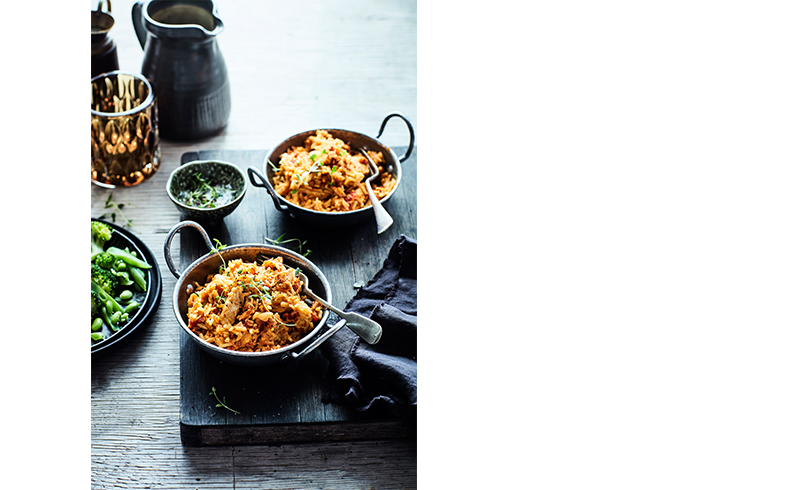Sophie Gray’s tips for shopping smart to save on groceries
Having a child diagnosed with cancer can put a lot of strain on a family’s finances, especially when one or more parents have to take time off work. Grocery shopping can quickly become a burden for some families, as it’s an easy area to blow the budget.
Having a child diagnosed with cancer can put a lot of strain on a family’s finances, especially when one or more parents have to take time off work. Grocery shopping can quickly become a burden for some families, as it’s an easy area to blow the budget.
To help whānau adapt to their new situation we asked our ambassador Sophie Gray, aka the Destitute Gourmet, to share some of her top tips for keeping the weekly costs down when it comes to feeding the family.

- Plan the menu
Often the hardest part of feeding the troops every day is deciding what to make. Menu planning is the easiest way to take the stress out of the daily dinner dilemma.
Your menu plan can be as simple as dinner for every night of the week or can go as far as all meals and snacks. The plan can accommodate supermarket specials and seasonal variations, and the dishes you choose can be selected to suit your family.
Make sure you include some dishes that are quick to make for busy days, such as this ‘One-pan peanut chicken and rice’ recipe.
- Make a list of all your basic pantry essentials
These are all the things that you need to have in stock to keep the family ticking over. Not what you like, just what you need.
The essentials list should start with fresh fruit and veg. You can make a wider variety of nourishing meals by combining fresh produce with basics that you already have.
Then add the staples. This could include flour, rice, eggs, seasonings, milk, butter, oil, baking powder, salt, dried pasta… Just the must-have ingredients that you use regularly.
Add a basic range of grains, canned foods, sauces and spreads. Then you can include a selection of frozen food. Remember, it’s just the essentials – peas and beans are fine, but ice cream and frozen pizza? They’re going on another list…
- Make a list of luxuries
Record anything your household likes but is not essential to your survival, such as ice cream, wine, fancy cereals, biscuits, fancy oils, kids’ favourites.
This list is really important as it’s impossible to differentiate between a need and a want in the 4.5 seconds of thinking time you have in the supermarket aisle. It establishes your priorities and puts some boundaries around what you buy.
Choose only one or two luxury items to buy each week (and only if you can afford it). Having access to some of your favourite foods or ingredients helps you stay on track, and a little treat now may prevent a major blow out later on.
- Only shop once a week
If you are serious about shopping smart, you need to decide that you will only go to the supermarket once a week.
Avoiding the emergency dash to the supermarket or takeaway shop will save you hundreds of dollars. Over a few weeks you will get to know how many litres of milk you go through a week, how many loaves of bread, how much toilet paper and how long the laundry powder lasts.
If you run out of something, go without or make do until the following week. You’ll be amazed at what you can manage. You will use up all the old cans of bean salad in the back of the pantry and learn to use the ingredients that you bought for a special recipe you never got around to making.
- Avoid semi-prepared products and ready meals
It’s expensive to eat ready-prepared meals and they have severe nutritional limitations. Homemade food tastes better, is better for you and is much more flexible than readymade.
A lot of today’s convenience food is simple everyday stuff. Items such as pasta sauces, gravies, seasoning mixes, pastes, pizzas, soups, baked goods and breads have all been bottled, bagged, boxed, frozen and canned for our convenience.
If you have time, try making some of these from scratch instead. Often it’s a lot easier than it seems, and ingredients can be substituted to accommodate for dietary needs or individual preferences. Just doing some baking is a good place to start – making a batch of muffins or biscuits can save you heaps. Why not try doubling the recipe and freezing the leftovers?
Remember, what is realistic for one household may not be realistic for another. Likewise, you might be able to manage more ‘from scratch’ cooking one week than the next – just do what works for your family.
Find more tips on shopping smart and menu planning at destitutegourmet.com.

About the author
Food writer, author, presenter, and former editor of Food magazine, Sophie Gray is the face and inspiration behind Destitute Gourmet and an ambassador for Child Cancer Foundation.
With a background in professional cookery and her feet firmly planted in the realities of busy family life, Sophie is a champion for the average Kiwi household.


